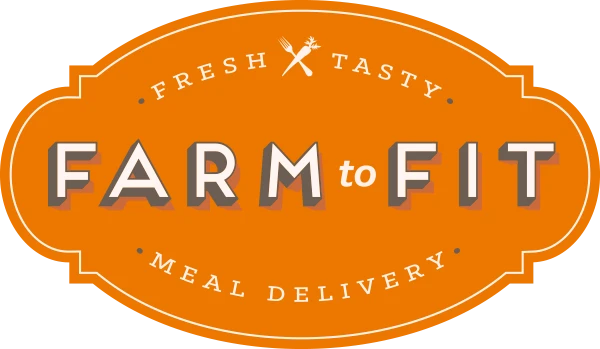GLP-1 Diet Plan and Weight Stigma: Are You Getting the Right Advice?
Posted on
GLP-1 medications like Ozempic have become a hot topic in the world of weight loss. But along with their popularity, there’s also growing concern about weight stigma and misinformation surrounding them. Are you getting the right advice?

For those following a GLP-1 diet, choosing the right meal plan can be challenging. Finding balanced, portion-controlled meals that align with your health goals is key. Services like Farm to Fit offer convenient, nutritionist-approved meal prep options, making it easier to stay on track without stress.
Debunking Myths about GLP-1 and Dieting
There’s a lot of misinformation about GLP-1 medications and weight loss. One of the biggest myths is that you can eat anything you want and still lose weight. While GLP-1 medications suppress appetite, they don’t magically eliminate the impact of poor nutrition.
For example, someone who eats highly processed, high-sugar foods may still struggle with energy crashes, digestive issues, and slower metabolism. On the other hand, prioritizing lean proteins, fiber-rich vegetables, and healthy fats will support sustainable weight loss and improve overall well-being.
Another myth is that GLP-1 medications replace the need for exercise. While they help reduce calorie intake, regular physical activity remains crucial for maintaining muscle mass, improving cardiovascular health, and boosting mood.
Weight Stigma: The Hidden Challenge
Weight stigma refers to the judgment, discrimination, and social biases that people face due to their body size. Unfortunately, many people taking GLP-1 medications experience negative comments, such as:
- “You’re taking the easy way out.”
- “You don’t need that medication—you just need more willpower.”
- “Your weight loss isn’t real because it’s from a drug.”
These misconceptions can lead to guilt, shame, and anxiety for those on GLP-1 medications. However, it’s important to recognize that obesity is a complex medical condition, not simply a matter of willpower. Just like any other health treatment, GLP-1 medications are a tool to support well-being, not a shortcut.
To combat weight stigma, individuals can:
- Educate others about the science behind GLP-1 medications.
- Set boundaries with those who make harmful comments.
- Find a supportive community that understands their journey.
Does the GLP-1 Diet Plan Encourage Unhealthy Eating?
Some critics argue that following a restrictive GLP-1 diet plan can promote disordered eating habits. While it’s true that over-restriction can be harmful, the goal of a GLP-1 diet is not deprivation—it’s about mindful, balanced eating.
One of the biggest challenges GLP-1 users face is learning to eat appropriately sized meals since these medications slow digestion and reduce hunger cues. This can lead to either:
- Under-eating, where people struggle to meet their nutritional needs.
- Overeating out of habit, which can cause discomfort and digestive issues.
To avoid these pitfalls, experts recommend:
- Eating smaller, nutrient-dense meals throughout the day.
- Listening to body signals and stopping before feeling overly full.
- Choosing foods that provide long-lasting energy, such as lean proteins, whole grains, and healthy fats.
For those who find meal planning overwhelming, Farm to Fit provides portion-controlled, nutrient-rich meals designed for GLP-1 users, ensuring they get the right balance without the stress.
Mental Health and Body Image While on GLP-1 Medications
Weight loss can trigger a mix of emotions, from confidence boosts to body image struggles. Some individuals feel excited about their progress, while others experience anxiety, body dysmorphia, or societal pressure to maintain a certain size.
Common mental health challenges include:
- Fear of weight regain after stopping medication.
- Pressure to lose more weight even when already at a healthy size.
- Comparing oneself to unrealistic beauty standards.
To maintain a healthy mindset, it’s important to:
- Focus on overall health, not just weight.
- Celebrate non-scale victories, such as increased energy or improved lab results.
- Seek professional support, such as therapy or counseling, if struggling with self-image.
By prioritizing mental and physical health equally, individuals can create a sustainable, positive relationship with their bodies.
Conclusion: Making Informed Choices
A GLP-1 diet can be a helpful tool for weight management, but it's not a magic solution. A balanced diet, mental well-being, and avoiding weight stigma should all be part of the journey. The best advice? Focus on what makes you feel good—physically and mentally. If you need GLP-1-friendly meal solutions, Farm to Fit provides nutritious, chef-prepared meals that fit your health goals.
FAQ's about GLP-1 Diet and Weight Stigma
1. Do I need to follow a strict diet while taking GLP-1 medications?
No, but making healthier food choices can enhance weight loss and prevent side effects like nausea.
2. Can GLP-1 medications lead to eating disorders?
While GLP-1 medications themselves don’t cause eating disorders, an overly restrictive mindset can. It's important to approach dieting with balance and care.
3. How do I deal with negative comments about my weight loss?
Surround yourself with supportive people and remember that your health journey is personal.
4. Is weight regain possible after stopping GLP-1 medications?
Yes, weight regain is common if lifestyle changes aren’t maintained. Long-term healthy habits are key.
5. What’s the best way to combat weight stigma?
Education, self-acceptance, and challenging harmful stereotypes can help reduce weight stigma in society.
By staying informed and making mindful choices, you can navigate your weight loss journey with confidence and self-respect.
